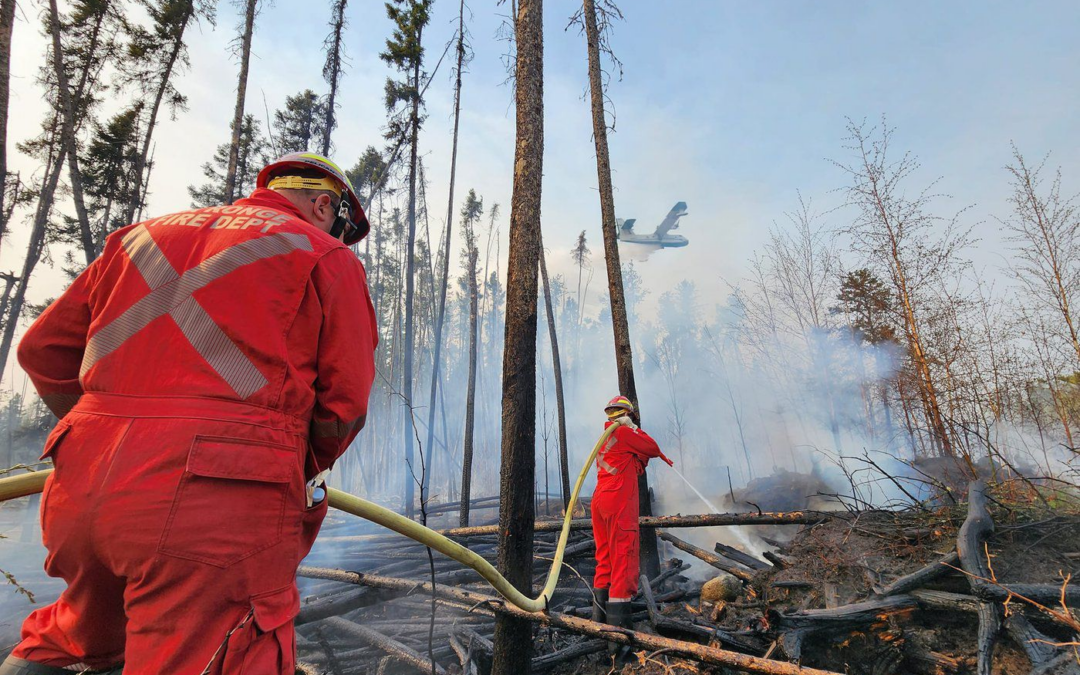By: Kimiya Shokoohi, Local Journalism Initiative Reporter, The StarPhoenix
A two-year pilot program in Saskatchewan aims to build a better understanding of the needs and requirements of First Nations in regions affected by wildfires.
The federal government recently announced a program for fighting wildfires in the Prince Albert area specific to the region’s Indigenous communities. The two-year training initiative — billed as the Prince Albert Grand Council Indigenous wildfire stewards pilot program — looks to combine traditional and modern techniques for combating wildfire.
“Individual communities require individual responses,” said Krystopher Chutko, an assistant geography and planning professor at the University of Saskatchewan.
“What happens in (Saskatchewan) can be very different from what happens in any other community in Canada.”
The program, receiving nearly $525,000 in federal funding, is scheduled to start in 2024. Providing a more specialized plan of action for one community is an approach Chutko believes will offer valuable knowledge and possibly better solutions for the growing concern of climate change.
“The pilot project underscores the indispensable role that First Nations people play in safeguarding our communities, ancestral lands and Inherent and treaty rights, particularly in the face of climate change,” said Prince Albert Grand Council Grand Chief Brian Hardlotte.
“This initiative strengthens community resilience against fires by endorsing First Nations-led, field-based fire camps. It also fosters intergenerational dialogue and knowledge exchange by bringing together elders and young people with fire experts trained in both traditional methods and modern techniques.”
The Prince Albert Grand Council applied to Natural Resources Canada for funding for the program. Cliff Buettner, program director with the Prince Albert Grand Council said the program seeks to update its controlled fire burning plan and hire more personnel. “We’re responding to climate change,” Buettner said, in correction when asked if the program could mitigate fires as a result of climate change.
The program is also expected to help address employment barriers that exist for Indigenous peoples.
It’s expected that 320 existing woodland fire practitioners will participate in the traditional ecological knowledge training portion of the program with elder advisors. Another 125 Indigenous fire stewards are expected to be trained on fire camp and fire guardian programs. In all, upwards of 445 participants could complete the pilot program.
“The Indigenous wildfire stewards pilot program will increase capacity to prepare for and respond to wildfires through training and traditional ecological knowledge,” Minister of Energy and Natural Resources Jonathan Wilkinson said in a statement.
It’s been a terrifying summer for wildfires across the country.
In Saskatchewan, there are currently 22 active wildfires. According to the Saskatchewan Public Safety Agency, there have been 410 to date this year.
More than 22,000 people are reported to have been ordered to evacuate due to wildfires in the Northwest Territories. The Saskatchewan Public Safety Agency deployed 40 firefighters to aid with the evacuations; 16 were deployed to the Yukon.
In British Columbia, upwards of 36,000 are subject to evacuation due to ongoing wildfires in and around Kelowna. The province has declared a state of emergency and imposed a ban on non-essential travel to better aid firefighters and evacuees.
“Canada is committed to keeping communities safe from wildfires,” Wilkinson said. “This means providing people with the skills needed to identify and fight wildfires in their communities.”
